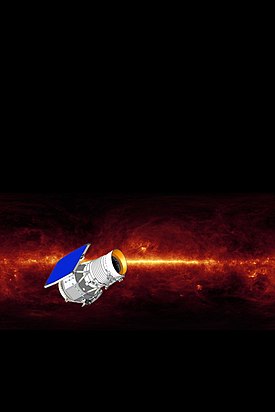M
MeteorWayne
Guest
NASA'S WISE Spacecraft Ready for Launch Dec. 9 from California WASHINGTON -- The launch of NASA's Wide-field Infrared Survey Explorer, or WISE, aboard a Delta II rocket is scheduled to occur between 9:09 a.m. and 9:23 a.m. EST on Wednesday, Dec. 9, from Vandenberg Air Force Base in California. NASA will provide television and Internet coverage of prelaunch activities and launch.
After launch, WISE will scan the entire sky in infrared light with a sensitivity hundreds of times greater than ever before, picking up the glow of hundreds of millions of objects and producing millions of images. The mission will uncover objects never seen before, including the coolest stars, the universe's most luminous galaxies and some of the darkest near-Earth asteroids and comets.
A prelaunch news conference on NASA Television will be held on Dec. 7 at 4 p.m. at the NASA Vandenberg Resident Office. Reporters can ask from participating NASA centers. A WISE mission science briefing will immediately follow the prelaunch news conference. The briefings will be webcast at:
http://www.nasa.gov/ntv
On Dec. 9, NASA TV coverage of the countdown and launch will begin at 7 a.m. A WISE webcast with launch and mission principals is scheduled for noon on Dec. 8. To access WISE features, visit NASA's WISE Web site at:
http://www.nasa.gov/wise
Audio of the prelaunch news conference and the launch coverage will be available by dialing 321-867-1220/1240/1260. This is a listen-only audio system. Mission audio of countdown activities without NASA launch commentary will be carried on 321-867-7135 beginning at 6 a.m.
Launch coverage of WISE/Delta II countdown activities also will be available on the NASA Web site at:
http://www.nasa.gov
Live countdown coverage on NASA's launch blog begins at 7 a.m. Coverage features real-time updates of countdown milestones, as well as streaming video clips highlighting launch preparations and liftoff.
http://www.nasa.gov/centers/kennedy/home/ksc_blogs.html
Beginning Dec. 3, a WISE mission news center will be operational at the NASA Vandenberg Resident Office. Reporters should call 805-605-3051 for launch information. Recorded status reports also will be available at that time by dialing 805-734-2693.
After launch, WISE will scan the entire sky in infrared light with a sensitivity hundreds of times greater than ever before, picking up the glow of hundreds of millions of objects and producing millions of images. The mission will uncover objects never seen before, including the coolest stars, the universe's most luminous galaxies and some of the darkest near-Earth asteroids and comets.
A prelaunch news conference on NASA Television will be held on Dec. 7 at 4 p.m. at the NASA Vandenberg Resident Office. Reporters can ask from participating NASA centers. A WISE mission science briefing will immediately follow the prelaunch news conference. The briefings will be webcast at:
http://www.nasa.gov/ntv
On Dec. 9, NASA TV coverage of the countdown and launch will begin at 7 a.m. A WISE webcast with launch and mission principals is scheduled for noon on Dec. 8. To access WISE features, visit NASA's WISE Web site at:
http://www.nasa.gov/wise
Audio of the prelaunch news conference and the launch coverage will be available by dialing 321-867-1220/1240/1260. This is a listen-only audio system. Mission audio of countdown activities without NASA launch commentary will be carried on 321-867-7135 beginning at 6 a.m.
Launch coverage of WISE/Delta II countdown activities also will be available on the NASA Web site at:
http://www.nasa.gov
Live countdown coverage on NASA's launch blog begins at 7 a.m. Coverage features real-time updates of countdown milestones, as well as streaming video clips highlighting launch preparations and liftoff.
http://www.nasa.gov/centers/kennedy/home/ksc_blogs.html
Beginning Dec. 3, a WISE mission news center will be operational at the NASA Vandenberg Resident Office. Reporters should call 805-605-3051 for launch information. Recorded status reports also will be available at that time by dialing 805-734-2693.



